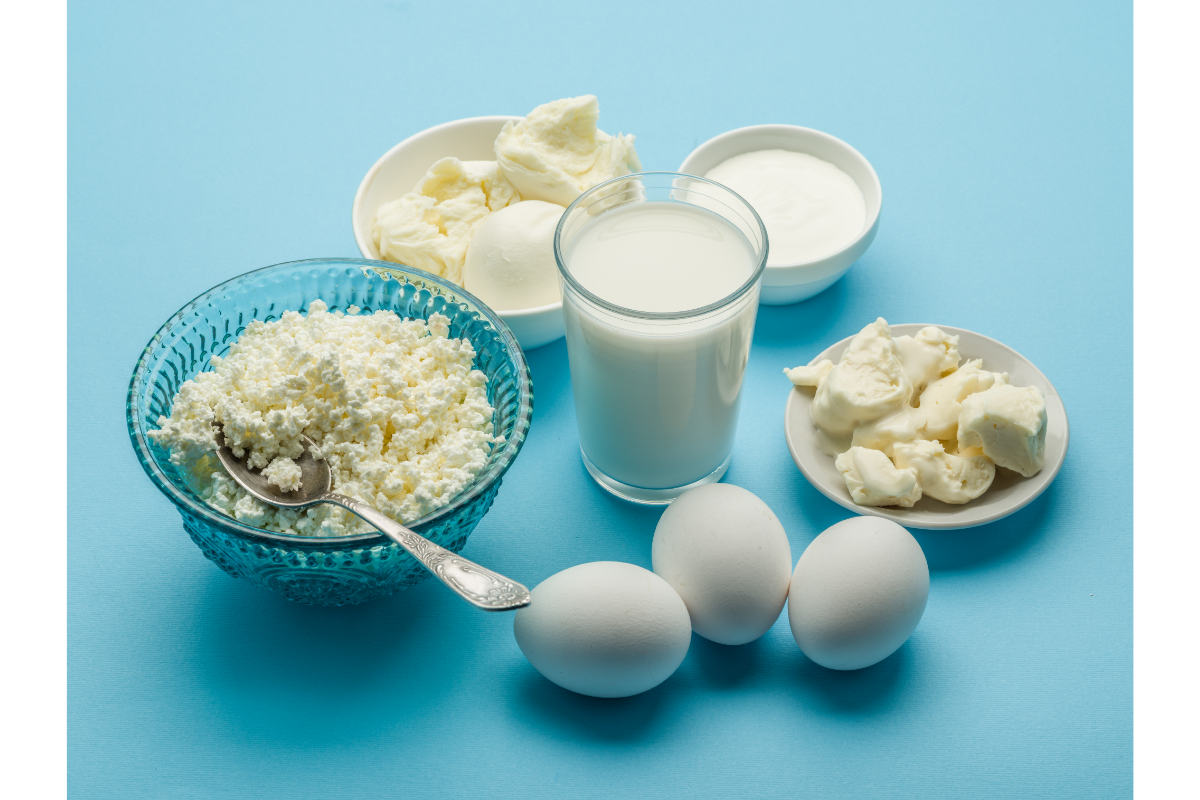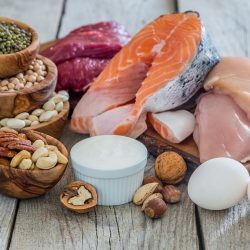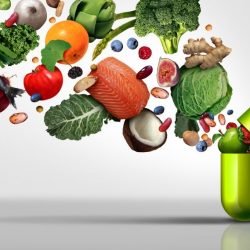Old age, often seen as the twilight of life, brings with it unique nutritional challenges. One topic that is often debated is:“Should we eat more protein as we get older?“. At first sight, this may seem counter-intuitive. After all, we tend to associate protein intake with physical growth and sporting activity, don’t we? However, recent advances in nutrition and health research offer us a different perspective.
What are proteins good for?
What is a protein?
Proteins, often referred to as the “building blocks of life”, are complex macromolecules made up of amino acids. These essential components play a fundamental role in almost all the body’s biological functions. There are twenty types of amino acid that combine in different ways to create different types of protein, each with a unique structure and function. Proteins are not simply nutrients to be consumed; they are literally the building blocks of our bodies, from muscles and enzymes to hormones and antibodies.
The role of proteins in the body
Proteins play a diverse and vital role in the human body. They are essential for building and repairing tissues, particularly muscles, skin and bones. Proteins also play a crucial role in regulating physiological processes through enzymes and hormones. For example, enzymes, which are proteins, speed up chemical reactions in the body, while hormones, also proteins, act as messengers to coordinate biological activities.
Proteins are also essential to the functioning of the immune system. Antibodies, for example, are proteins that help protect the body against pathogens. Proteins also play a key role in the transport and storage of nutrients, helping to regulate essential metabolic processes. For example, haemoglobin, a protein found in red blood cells, is responsible for transporting oxygen throughout the body.
Should we eat more protein as we age?
In the world of nutrition, protein is like the hidden superstar, often relegated to the background by more glamorous food trends. Yet proteins are the building blocks of our bodies, essential for maintaining health and well-being, and their importance increases with age.
Proteins play an essential role in our bodies. They are needed to repair damaged cells, build new cells, produce hormones and enzymes, and maintain good bone health. However, as we age, our bodies become less efficient at using protein, which can lead to a loss of muscle mass and strength, known as sarcopenia.
Do older people need to eat more protein?
Protein requirements increase with age
As we age, the body undergoes changes that can affect protein metabolism. As a result, protein requirements tend to increase with age. General recommendations for adults suggest an intake of around 0.8 grams of protein per kilogram of body weight per day. However, for older people, this amount may not be sufficient to maintain muscle mass and other bodily functions.
Studies indicate that a higher intake, in the region of 1.0 to 1.2 grams of protein per kilogram of body weight per day, may be beneficial for the elderly. This increased intake helps to compensate for the natural reduction in protein synthesis in the body, a consequence of ageing. It is also important to consider the quality of the proteins consumed. Proteins rich in essential amino acids, such as eggs, fish or legumes, are particularly recommended for the elderly.
Sarcopenia: An effect of ageing
As we age, our bodies undergo a series of changes. One of these changes concerns our muscle mass, which tends to diminish with age, a phenomenon known as sarcopenia. This process of muscle breakdown, which can be detrimental to our overall health and quality of life, is intrinsically linked to our protein intake. In this section, we’ll take a deeper dive into sarcopenia, looking at its causes, its effects and how increasing protein intake can help combat this ageing phenomenon.
What is sarcopenia?
Sarcopenia is an age-related degenerative disease characterised by a progressive loss of muscle mass and strength. It is often accompanied by a reduction in physical function, an increased risk of falls and fractures, and a reduced quality of life. According to a study published in the Journal of the American Medical Association, up to 50% of people aged 80 and over are affected by sarcopenia.
Sarcopenia and proteins: the link
Sarcopenia, characterised by a progressive loss of muscle mass and strength, is a common consequence of ageing. To combat this phenomenon, an increased intake of amino acids, the basic components of proteins, is often recommended. This nutritional strategy is supported by numerous scientific studies.
Research shows that adequate protein intake can play a crucial role in preserving muscle mass in the elderly. Proteins are not only necessary for the maintenance of existing muscles, but are also essential for the repair and growth of muscle fibres, particularly after physical exercise. This mechanism is of vital importance, as it not only helps to prevent age-related muscle loss, but also promotes muscle recovery and strengthening after physical activity, thereby helping to slow the progression of sarcopenia.
Protein and bodybuilding: the winning combination for seniors
The effectiveness of this link between protein consumption and the fight against sarcopenia is influenced by several factors. The type of protein consumed, whether of animal or vegetable origin, can affect the absorption and use of amino acids by the body. In addition, distributing protein consumption throughout the day, rather than concentrating a high intake all at once, appears to be a more effective approach to stimulating muscle protein synthesis in the elderly.
In addition, combining increased protein intake with regular physical activity, particularly resistance exercise, has been shown to be particularly effective in combating sarcopenia. It is therefore crucial to encourage the elderly to include high-quality protein sources in their daily diet and to take part in physical activities suited to their condition.
Protein requirements during the menopause and perimenopause
The menopause and the period preceding it, known as the perimenopause, are significant stages in a woman’s life, characterised by profound hormonal changes. These changes can influence many aspects of health, including nutritional needs. Among these needs, protein intake is of particular importance.
During the perimenopause and menopause, women may be more likely to lose muscle mass as a result of hormonal fluctuations. The decline in oestrogen levels, in particular, has a direct impact on muscle and bone mass. To counter these effects, increased protein intake may be beneficial.
Protein plays a crucial role in maintaining muscle mass and strength, which is essential for preventing osteoporosis, a condition common in post-menopausal women. In addition, protein can help manage other menopausal symptoms, such as weight gain and metabolic changes, by improving metabolism and promoting a feeling of satiety.
Women in the perimenopause and menopause should aim to include a high-quality source of protein at every meal. Protein sources can include fish, poultry and eggs, as well as plant-based options such as legumes, tofu and nuts. Emphasis should also be placed on foods rich in calcium and vitamin D, which are essential for bone health.
How can I increase my protein intake as I get older?
So how should we increase our protein intake as we get older? Here are a few suggestions:
- Eat protein-rich foods at every meal: This can include animal-based foods such as meat, poultry, fish and dairy products, as well as plant-based foods such as pulses, nuts and seeds.
- Choose high-quality proteins: Not all proteins are created equal. High-quality proteins, which contain all the essential amino acids our body needs, are more beneficial.
- Spread your protein intake throughout the day: Instead of consuming most of your protein at a single meal, try to spread it throughout the day. This can help your body use protein more efficiently.
Protein powder: A boon for protein intake
To increase your protein intake, protein powders can be a valuable ally. These products, available in various forms such as whey, casein or plant-based, are a practical and effective way of increasing your daily protein intake.
In the context of ageing, their consumption can help to maintain and develop muscle mass, while offering appreciable convenience and ease of use. They can be added to smoothies, yoghurts or even cooking recipes for a protein boost.
However, it is important to note that protein powders should not replace a balanced diet. They should be considered as a complement to a diet rich in whole, nutritious foods. What’s more, like all products, quality is key. Choose protein powders free from unnecessary additives and be sure to check the protein content to ensure you get the maximum benefit.
Finally, it’s always advisable to consult a healthcare professional before introducing a new dietary supplement into your routine, especially if you have pre-existing health conditions or are taking regular medication.
FAQ
- Should I eat more protein as I get older? Yes, older people can benefit from increased protein intake to prevent loss of muscle mass and maintain their physical strength.
- How can I increase my protein intake? You can increase your protein intake by eating protein-rich foods at every meal, choosing high-quality proteins and spreading your protein intake throughout the day.
- What protein-rich foods can I include in my diet? Protein-rich foods include meat, poultry, fish, dairy products, legumes, nuts and seeds.
- What is sarcopenia? Sarcopenia is an age-related degenerative disease characterised by a progressive loss of muscle mass and strength.
- How can protein consumption help prevent sarcopenia? Sufficient protein intake can help preserve muscle mass in the elderly and contribute to muscle repair and growth after exercise.
- What is a high-quality protein? A high-quality protein is one that contains all the essential amino acids our body needs.
In short, the answer to the question “Should you eat more protein as you get older?” is a resounding yes. Increased protein intake can help prevent the loss of muscle mass associated with ageing. What’s more, it can help maintain physical strength and improve overall quality of life. So you can add ‘Whey’ and ‘Vegetable Protein Powder’ to your list of gift ideas to celebrate your grannies next year!
@soin.et.nature ?? Vieillissement et Protéines : Pourquoi Augmenter votre Consommation Protéique ? La réponse est oui ! ?♀️? Explorez notre sélection de poudres de protéines, à l’instar de la Protéine Vegan Tri-Sources d’Eric Favre, composée de protéines de qualité supérieure issues du pois, du riz et de la spiruline ???. Riche en protéines et dotée de bons glucides grâce au ModCarb™, elle se révèle être un allié précieux pour préserver et développer votre masse musculaire en vieillissant ?. Si vous recherchez une option 100% biologique, considérez notre ProtéineultrAA Bio de LT Labo, un mélange unique de 5 sources de protéines végétales telles que la courge et le lin ??. Dénuée d’additifs, de gluten, de lactose, de soja, d’arômes ou d’édulcorants, elle représente le choix parfait pour une alimentation équilibrée et saine ??. Enfin, pour une option soutenue par la science, tournez-vous vers notre Vege Protein Absolute Vegetarian Protein de NHCO Aminoscience, enrichie en acides aminés et protéase d’origine végétale. ?? Ne tardez plus, visitez notre site web pour découvrir notre gamme complète et prenez soin de vous tout en respectant la planète ?❤️. Cliquez sur le lien en bio pour entamer votre quête vers une meilleure santé ??. #Sarcopénie #HealthyLife #Fitness #proteines #proteinesvegetales #vegan #veganprotein #longevity#EricFavre #LTLabo #NHCOnutrition #santé #naturopathie #proteinas #conseils #perpignan #santénaturelle #SoinEtNature ????
♬ Happy song 1 for cooking / child / animal videos(476909) – きっずさうんど
Sources
- Front Nutr. 2023; Effects of 8 weeks of resistance training in combination with a high protein diet on body composition, muscular performance, and markers of liver and kidney function in untrained older ex-military men
- Front Sports Act Living. 2022; Strength training in elderly: A useful tool against sarcopenia





